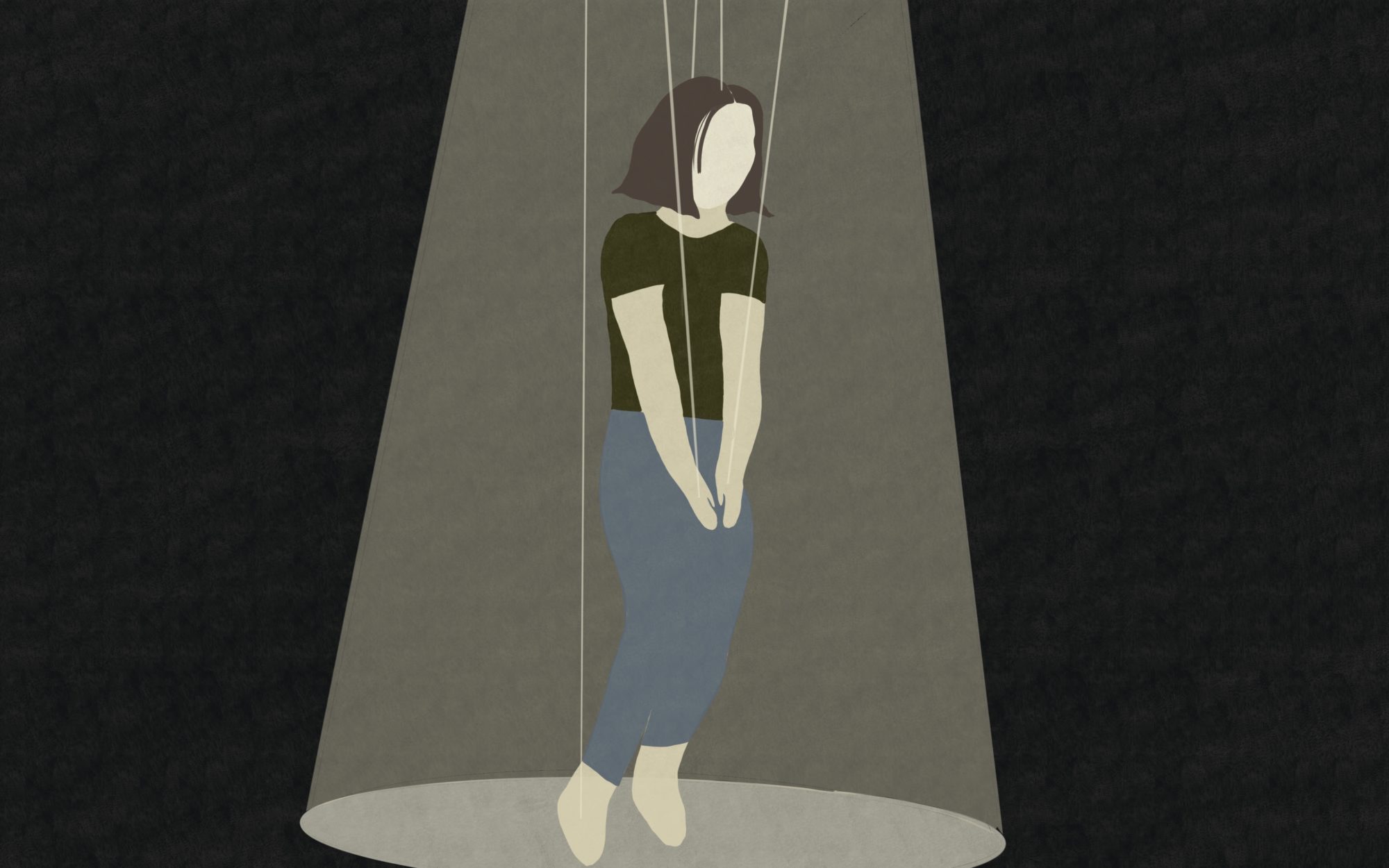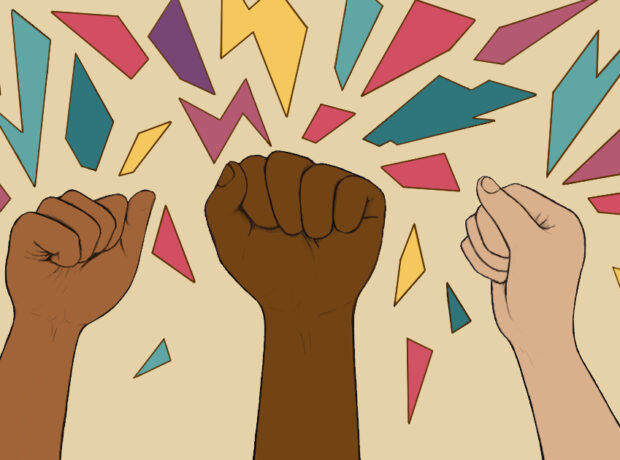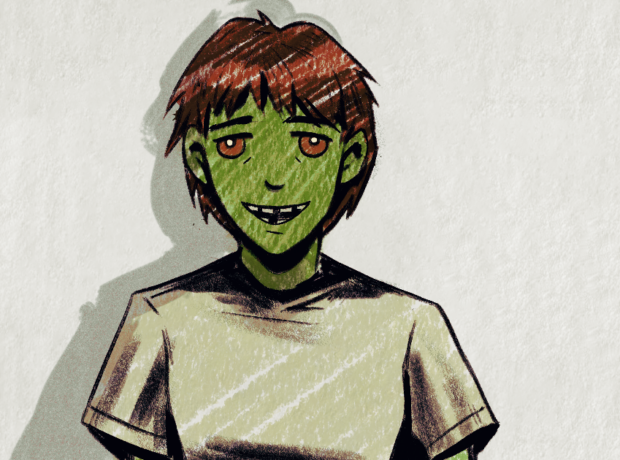In this powerful poem spanning a year in the life of a sexual abuse survivor, our 16-year-old writer describes the impact of abuse and raises questions about the way the legal system handles these crimes.
Kylie Clarke is the joint winner of the University of Warwick’s fourth annual Writing Wrongs Schools’ Competition, organised by the Centre for Human Rights in Practice. This is her winning article which she reworked during her internship with Lacuna Magazine.
Page 1.
The key slots in the lock as she heaves
open her front door – it feels heavier
than before.
The only noise she meets is the slow ticking of the clock –
tick, tick, tick –
as it mimics her thudding heart.
She is alone – and glad of it.
Gripping the bannister to steady her weight, she drags herself
up the stairs.
Bedroom. She glares at the phantom figure in the mirror,
as trembling fingers rise up to her watery eyes, smudging
black mascara down her cheeks. Clenching her
fist, she smashes the face staring back at her –
over and over and over.
Hot blood drips from her fingers,
shards scattered around her feet.
Shower. She scrubs her skin ferociously,
water stinging the fresh gashes on her hands,
a distraction from the cringing ache between
her legs.
Bile fills her mouth as she slumps against the floor
of the cubicle, her legs folding beneath her.
She splutters and coughs, as the water trickles down her
crushed form.
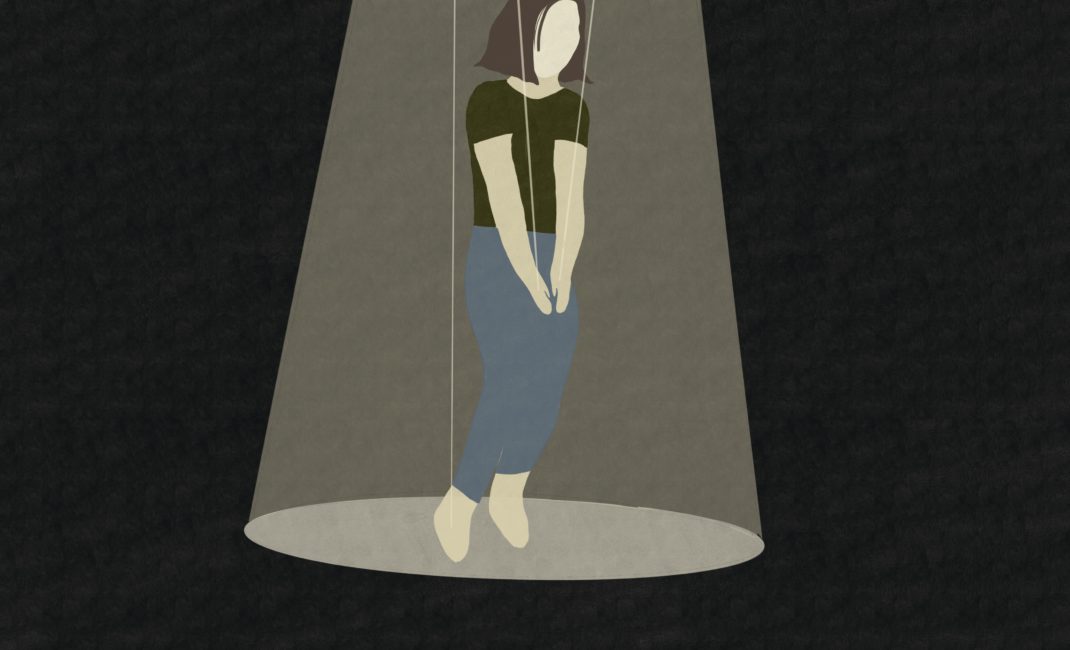
Page 10.
She wakes with a scream,
cold, salty droplets running down her mottled skin, hair matted to her
flushed forehead.
The same routine. Every night since.
Breakfast table. She sits in silence,
trying her best to sustain a sense of normality, whatever that used to be,
making vague excuses for the full plate in front of her.
Will eat later.
The new hole in the pit of her stomach will not be filled by food. Going anywhere today?
No, must stay inside and safe.
She can’t tell the truth. Can’t reveal the real reason, can’t risk bringing shame
upon her family, upon herself,
after all it happens to loads of people, it can’t be much of a big deal, right?
No, can’t tell the truth.
Just don’t feel like it.
Page 25.
She forces a plastic smile as she zones
in and out of the droning buzz of conversation.
Must not let the mask slip, must not let the curtain fall.
Mistakes may happen, cracks could show. They mustn’t.
Ignore the scars in the shower.
Ignore the anxiety that flares up when passing a man in the street.
Ignore the echoes of the sounds and the face imprinted on her brain,
which the shower can’t wash away, even if she scrubs until her skin burns
and her hand aches.
Nightclub. The alcohol leaves a sour taste, as she knocks back glass after glass,
wishing to be her old self again.
Her self before it happened.
Flashing lights. Music blaring. Crowds of people jostling each other,
the walls closing in.
A hand grabs her waist, maybe only for a second but it’s enough.
She wakes up lying on her side on the hard, slate grey pavement, gulping the
cold air to regain her breath. Why did you scream like that?
Why did you pass out? WHAT is going on?
She gulps once more and just like that, throws up
the truth, bitter and plain, all over the
slate grey canvas.
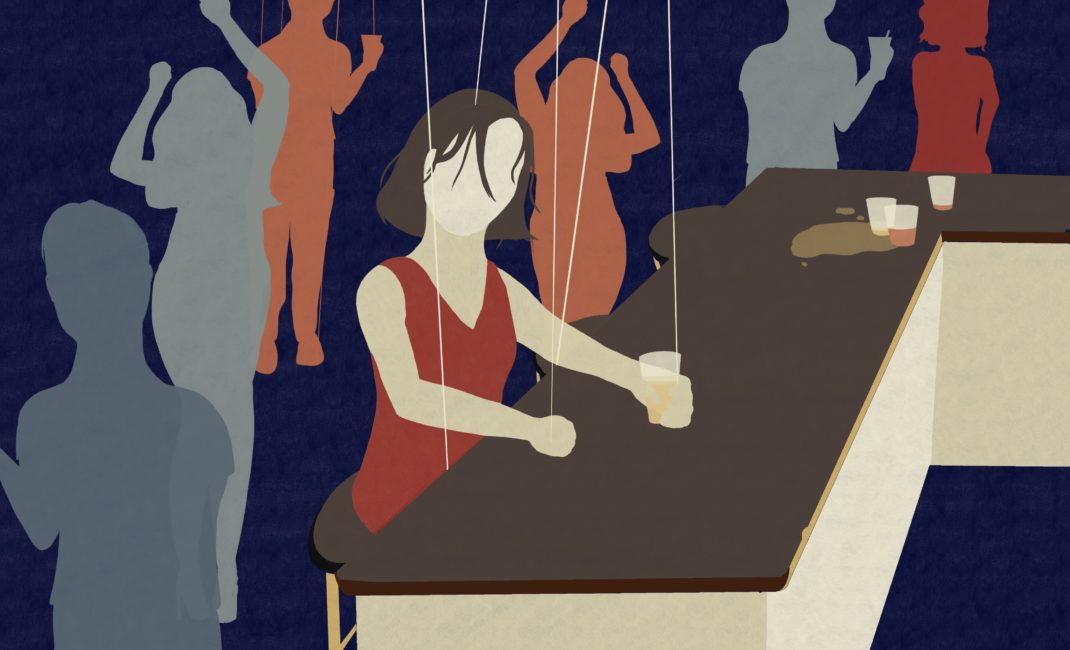
Page 40.
She answers the same questions again and again,
in a stupefied state.
Yes. No.
Why didn’t you tell us?
I don’t know.
Trapped in a cycle of questions and answers, questions and answers.
Going nowhere.
She avoids the well-meant, nauseating looks of pity
from her friends and the silent tears of her mother create prickles in
her own.
Her father, though he never speaks, radiates anger and frustration – maybe
shame. Sometimes she thinks – knows – that it would’ve been easier to say
nothing at all.
Police station.
Miss, it is important that you tell us every detail you can remember.
I’m trying.
Documents and forms filled out with shaky handwriting, seeing nurse after
doctor after police officer, extracting what they can from her.
Did you wash the clothes you wore that night?
They must think she’s stupid. They won’t believe her. This is pointless –
a door opens.
Miss, please could you answer some more questions.
Page 263.
Months have passed of meetings with lawyers who spoke in the
simplest terms.
Collecting bits of evidence, practising statements
as though they were lines of a play which had to be recited perfectly to a disapproving
audience.
Real life is a thing of the distant past, overshadowed
by the cloud of anxiety hanging over her
and those around her.
She knows that this day counts – it has all led up to this.
Courtroom. Her heart leapt out of her chest and her stomach felt dense at her first sight
of him since it happened. Cold, stony eyes absent of any sign of
remorse. She gulps, her tongue like sandpaper, the clock
ticking as the time for her to take to the stand looms.
She feels like the one on trial. She stands there,
her audience watching her with sceptical expressions. She recites
the lines, her voice strange to her ears
the lump in her throat contorting the sound. Interrogation.
Her palms grow damp and hands quiver, frustration building inside
her as the battle ensues.
She speaks her lines, yet the expressions staring back at her never melt.
Has she managed to convince them?
Please, please believe me…
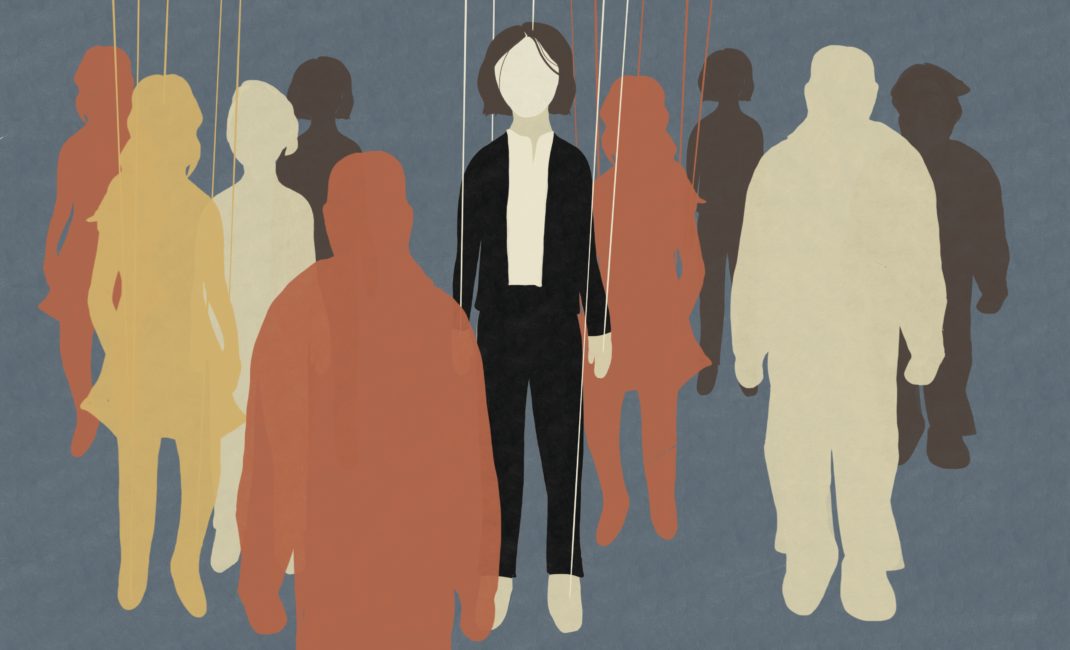
There is no solid evidence, nothing conclusive.
Why did she wait a month to tell anyone?
The boy is a respectable university student, he
plays for the rugby team.
They were both drunk, how do we know it wasn’t
consensual?
Why would she have gone out dressed like that
if she didn’t want something to happen?
She went out with him willingly, surely she knew
what the expectations were..
It could completely ruin his life.
Is she trying to get some twisted revenge?
She could have fought back.
Did she explicitly say no?
He is a nice boy.
Not guilty. The curtain closes.
Page 275.
The same routine resumes.
Bed. Sleep. Nightmare. Wake up. Hide in bed.
The same sinking feeling that put her in a trance, drowned out the commotion
of the tornado of which she was the eye, numbed her heart and turned her
brain to mush never leaves her.
She was the one convicted. She was the one sentenced to
suffering, branded a liar, branded a life-destroyer, while her attacker
walked free; the knife was twisted deeper and deeper.
A life in tatters, sodden and trodden on by them all-
the lawyers, the jury, the judge. Him.
It can not be put together again.
The glue won’t stick, the pieces won’t fit right.
Was she a fool for thinking that they would believe her?
Was she even …overreacting?
After all, it happens to millions of women, millions of women living the same routine,
millions of women living as a ghost of themselves, millions of women living with
injustice, living –
They are living.
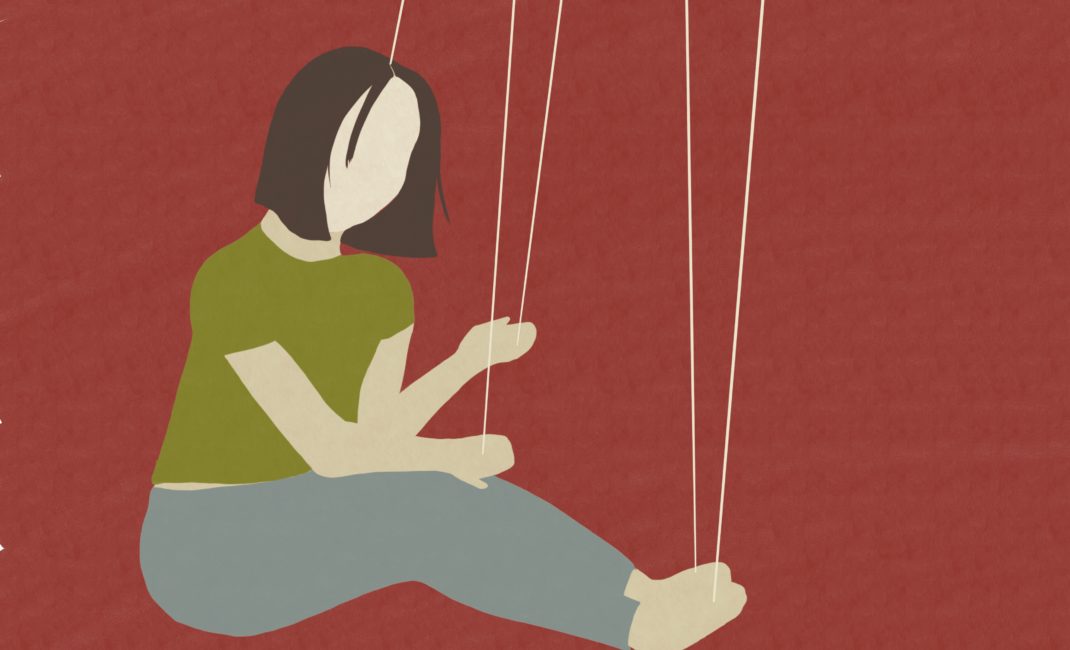
Page 364.
The sun shines through her windows.
Summer is coming.
She gets up and leaves the bed behind.
She feels the gentle heat on her skin and the breeze
in her hair. She can feel again.
As she walks, she remembers what happened to her almost a
year ago. It has changed her.
She will never forget it, she knows, not when she gets married,
when she has children of her own, or grandchildren.
But the nightmares are less frequent, the pain less prominent –
she is working on it, she is getting better.
She won’t let it define her, let him define her worth, let anyone else decide
her truth.
She will try and try and carry on trying – that is all she can do.
Remind herself that she is innocent. She is not to blame.
The system may have failed her, but she refuses to fail herself.
A long-lost sensation blossoms inside her. Hope.
She figures, maybe the pieces will never fit together again perfectly,
will never stick properly. She lets them go.
She takes a fresh sheet of paper, and
takes her life back.
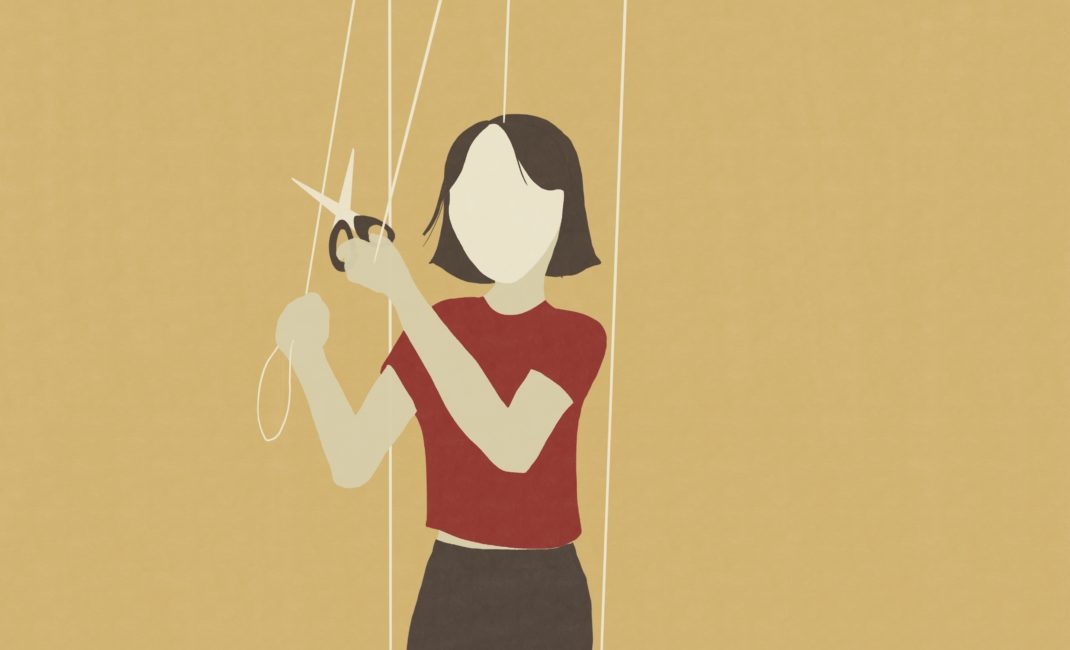
All illustrations by Kassidy Dawn
